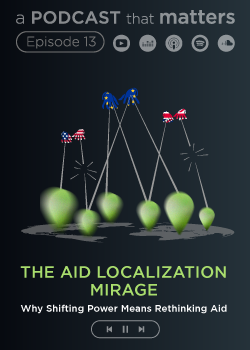Print

SU:GRE, Sustainable Green Fleets
Details
Locations:Africa, Asia, EU 27, Europe Non EU 27
Start Date:Unknown
End Date:Unknown
Sectors: Energy, Transport
Categories:Grants, consulting services
Funding Agencies:
Date posted:Oct 24, 2013
Description
Client: The European Commission, DG-TREN.
Activities: The objective of the SUGRE-Project is to promote and stimulate the use of alternative fuels by vehicle fleets (for example the vehicle fleets of municipal authorities, taxi’s and fleets of leased cars). This project, which is being carried out by a consortium of leading agencies in the energy field, encompasses the development of an implementation plan for policymakers and fleet managers and includes the exchange of best practices.
SUGRE (Sustainable Green Fleets) is an accompanying measure that promotes alternative propulsion and mainly focuses on fleets, but not only with regards to land transport. The main objective is to promote and support the conversion of fleets to alternative propulsion (ranging from bio-fuels, methane as fuel to hybrid systems comprised of combustion engines and electric propulsion systems) and the energy efficient usage of them.
SUGRE will foster a positive attitude towards alternative fuels and new power train concepts using captive fleets as forerunners and proof for the viability of alternative propulsion.
Site co-ordinators will organise the validation of the training/briefing materials, support the training/briefing and organise site visits for other fleet owners. We assume that two-way communication with fleet owners will greatly improve the efficacy of dissemination, due to the higher quality of the materials and the possibility of face to face communication. As we deal with fleet owners, the impact with regard to the vehicles to be converted is adequate to the effort. By using the results from fleet owners who have changed to alternative propulsion systems, we shall also gain good arguments for convincing individual car buyers. For air and water transport fleets over individual vehicles are dominating, so addressing fleets owners is the right way. A knowledge hub, implemented as an internet based communication and information platform, tools supporting the procurement and localisation of refuelling sites (mobile phone based), and a support desk will be implemented.
SUGRE comprises 6 work packages:
WP1 project management will be responsible for the management of the co-ordination of the dissemination actions, communication and contingency management, quality assurance procedures and financial administration.
In WP2, an in-depth baseline analysis will ensure that the dissemination materials will not only contain/treat all the practical aspects and collect the best cases/show cases, but also analyse existing campaigns and their effects.
WP3 will synthesise the research into an implementation plan for the dissemination of the experiences and good practices and define the content for the three target groups (captive fleets, driving schools, teachers and other fleets).
WP4 will validate the concept and produce and assess the training materials with the help of the members who are fleet owners.
WP5 will provide training/assistance and networking amongst captive and other fleet owners and will also address individuals via supporting driving schools and teachers with materials. For the show cases, real and virtual site visits will be organised/offered. The partners' many years of experience in networking and dissemination projects for DG TREN and others will help to offer both innovative dissemination approaches and high quality dissemination products.
WP6 will cover the general dissemination tasks (presentations, flyers, folders, newsletters, networking, internet platform) and evaluate the content and the procedures based on a discussion of the experience of the workshops with regard to technological and economical aspects. A concise report will reveal preconditions for new alternative propulsion concepts and future campaigns. The material will also be updated continuously in the course of the project. Impacts can be described as follows:
- saturation of the knowledge of stakeholders about alternative fuels and alternative propulsion to support the directive 2003/30/EC.
- improved inclination of staff involved in the procurement of vehicles towards alternative fuels or propulsion.
- satisfied customers acting as multipliers.
The number of alternatively fuelled/propelled vehicles will increase in the long term on account of follower sites in the projects. We expect 75% of captive fleets to be converted and a reduction of 25% of fossil fuels for transportation, provided that local governments can be convinced and the fiscal regimes changed.

